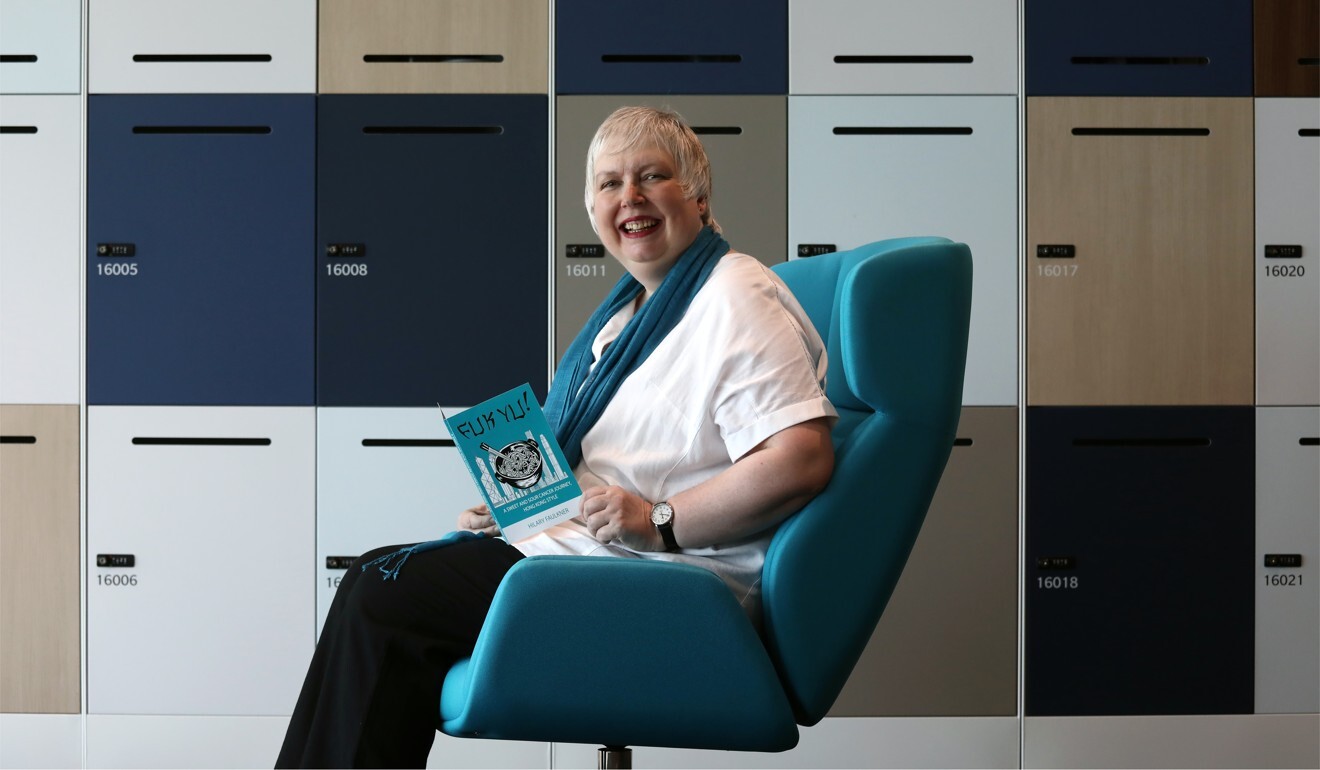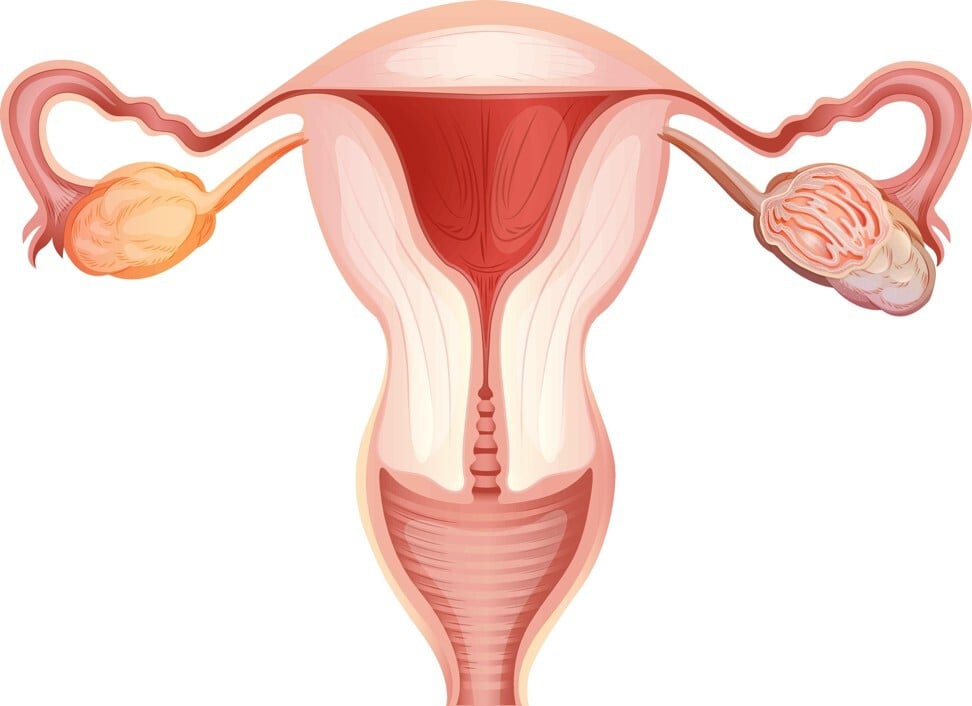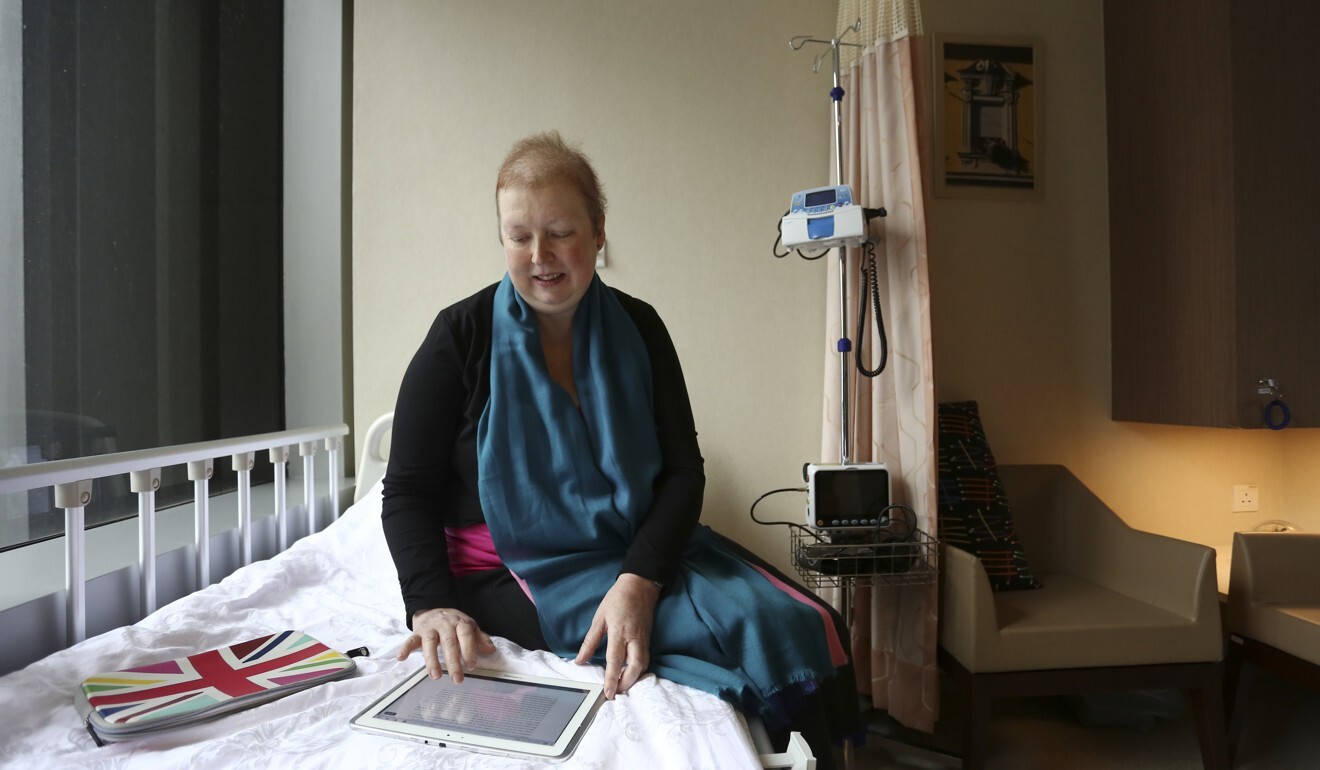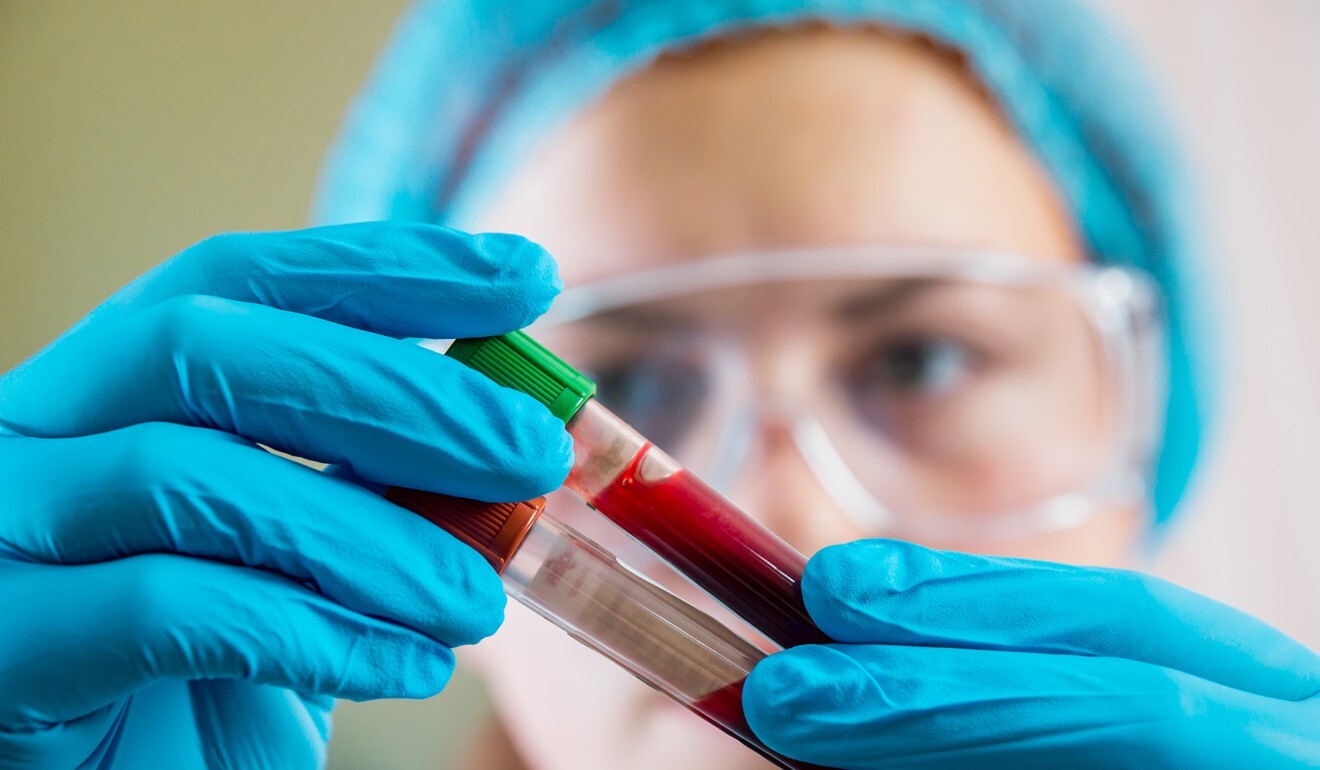
She had Stage 4 ovarian cancer and 22 tumours. Now cancer-free after five years, she’s written a book about it
- Diagnosed with an aggressive form of cancer in 2014, Hilary Faulkner describes her treatments and how she beat the disease in a self-published book
- Chemotherapy, radiotherapy, gene sequencing, targeted therapy – she counts herself lucky to have been in Hong Kong not her native UK – ‘I would have been dead’
“You have no idea the gruelling treatments you have to go through, like chemotherapy. You have no idea you get your blood checked constantly, like every week, during treatments,” she said of the insights captured in her book Fuk Yu!: A Sweet and Sour Cancer Journey, Hong Kong Style, out this month.
In April 2014, Faulkner was diagnosed with Stage 1 ovarian cancer, a rare ovarian clear cell carcinoma (OCCC), which advanced to Stage 4. At a clinic in Hong Kong’s Central district where she is having follow-up care, she says her cancer is aggressive in that it is hard to get rid of, not that it spreads quickly. She was awaiting a blood test result.
This is a momentous occasion for the 57-year-old, as a scan in July declared her cancer-free. There is, however, a small lymph node that is stabilised now and not malignant. Overall, the absence of obvious tumours in her body means her therapies have succeeded.

“Five-and-a-half long years of treatment and I have come out the other end fighting,” she says. That involved chemotherapy, radiation, targeted therapy and different operations, including one in 2016 to remove seven tumours from her liver. She writes in the book about being awake for the ablation part of that procedure, where she watched some growths getting “fried”.
Importantly, the book documents advanced treatments. Faulkner benefited from gene sequencing to get to know her cancer mutations’ make-up, which helped her oncologist customise treatments.

Faulkner recommends patients undergo gene sequencing; she used US company Foundation Medicine.
“If you don’t know your mutations, you’re working in the dark and throwing drugs at [the cancer] and you don’t know if they will work,” she says.
She benefited from immunotherapy for two years, an approach that bolsters the immune system to help it attack cancer cells. Faulkner responded well to a class of immunotherapy drugs called checkpoint inhibitors, including the drug Keytruda. It works by taking the brakes off receptors on immune cells, supercharging them to better hone in on and annihilate cancer cells.
“I’ve spoken to two doctors in the UK who said I would have been dead by now, as they only treat [my type of disease] with chemotherapy,” she says.
If you don’t know your mutations, you’re working in the dark and throwing drugs at [the cancer] and you don’t know if they will work
In the UK, the National Health Service is slow to adopt frontier cancer care for this disease. According to Target Ovarian Cancer, a charity in the UK, common treatments for patients are surgery and chemotherapy. Some patients can access targeted therapy drug Avastin through the NHS, depending on their condition and residents’ location.
Accessing new treatments means going on a drug trial. Faulkner is convinced that, given her rare disease type, she’d have failed to meet the criteria for drug trials for immunotherapy in the UK. “I’m very lucky to be here,” she says.
She also credits her company Arcadis, a built assets consultancy, for providing excellent medical support and being understanding. She worked full-time as a senior project manager while battling cancer, but had the option to work from home when she felt unwell.
Ovarian cancer is the sixth most common cancer among women in Hong Kong. According to the Hong Kong Cancer Registry, 598 women were diagnosed with this disease in 2016 and their median age was 53.

Detected early, patients have a good chance of being cured; however, this condition is often diagnosed during the advanced stages. Faulkner urges women, especially those over the age of 50, to pay attention to ovarian cancer risk factors and persistent symptoms that seem non-specific but warrant medical attention.
“I had backache and bloating that didn’t go away,” she recalls. Some patients experience a loss of appetite.
“I’m desperate to get the message to women in Hong Kong that clear-cell ovarian cancer is prevalent in Asian women – 25 per cent of Asian women get it, as opposed to 3 per cent to 4 per cent of Western women,” says Faulkner.

Her upbeat attitude and ability to make light of a serious situation shine through in our conversation. “I’ve seen cancer more as an inconvenience and got annoyed it was there, interfering with my life,” she says. “I was never going to let it beat me as much as I could really stop it.”
Some of the side effects of treatments chronicled in the book were tough. During immunotherapy, she struggled with fatigue. “[It’s] caused by the immune system in overdrive so you constantly feel like you have the flu,” she says. Chemotherapy resulted in deep vein thrombosis (DVT) that left her on blood thinners indefinitely.
She wasn’t permitted to fly during treatment, so she is keen to get away now. “For the first time in seven years I’m going back to the UK,” she says, tearfully. “I’m going to see my friends, and new friends from Facebook and doctors I spoke to but haven’t met yet … it’s a good thing to go back for Christmas.”

To newly diagnosed patients, her message is to not immediately surrender and go to a dark mental place. “Whatever stage it is in, you shouldn’t give up; stay positive,” she says.
Editor’s note: this story has been amended to correct the name of the company Faulkner used for gene sequencing: it is Foundation Medicine, not Foundation One Medicine.

